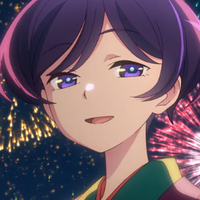#INTERVIEW: The Founder of an Anime and Manga Academic Journal Talks Anime Scholarship
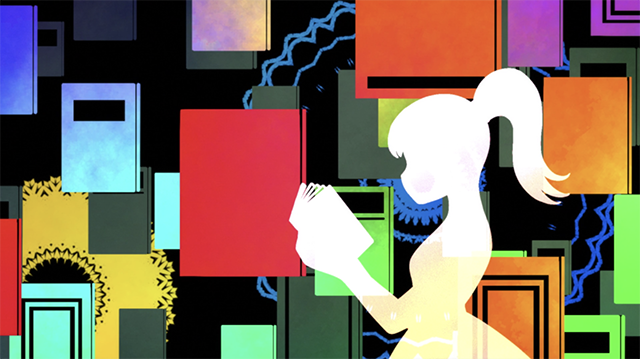
“#INTERVIEW: The Founder of an Anime and Manga Academic Journal Talks Anime Scholarship”

Anime and manga have truly begun to enter the mainstream in recent years, with pop culture icons from Michael B. Jordan to Billie Eilish becoming vocal about their love of both. Even in academia, anime and manga are becoming recognized as legitimate art forms. We had the pleasure to talk with Billy Tringali, the Editor-in-Chief of the Journal of Anime and Manga Studies, a new academic publication focusing on… you guessed it, anime and manga! Tringali talks about how the journal was started, the history of anime academia in the West, and the love of the medium that lives at the core of this project.
Could you introduce yourself and give us a brief explanation of the Journal of Anime and Manga Studies?
Hello! I'm Billy Tringali. I have a Master's of Science in Library and Information Science from the University of Illinois at Urbana-Champaign's iSchool, and I'm the Editor-in-Chief of the Journal of Anime and Manga Studies. I'm currently the Outreach Librarian at Emory University School of Law, where I build resources, programming, and partnerships that help support student success. I'm a member of the Editorial Board for the Journal of International Women's Studies. I'm also a popular culture scholar, having presented at the Popular Culture Association's National Conference on topics ranging from building morality systems in vampiric video games to socio-cultural anxieties concerning gender and sexuality in Dracula. I am completely obsessed with anything created by Junji Ito. My favorite manga is a tossup between Death Note and A Silent Voice.
The Journal of Anime and Manga Studies is an open-access journal dedicated to providing an ethical, peer-reviewed space for academics, students, and independent researchers examining the field of anime, manga, cosplay, and fandom studies to share their research with others. JAMS is peer reviewed by scholars with experience in these areas. The goal of JAMS is to explore anime as an art form and bring visibility to the deeper meanings, understandings, and/or cultural significance of anime, manga, cosplay, and their fandoms.
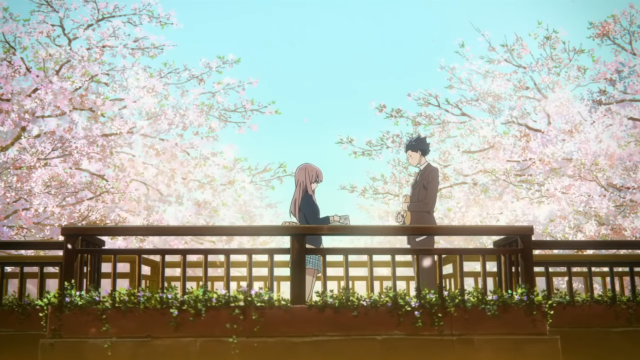
via Netflix
I understand that JAMS was born out of your desire to preserve and champion anime and manga. Could you tell us a bit about your personal experience with the media?
I love anime. I've been a fan of anime since I was a kid, but I didn't really start getting involved with anime and manga from a fandom perspective until high school. I founded my high school's anime club in 2009, and started attending and performing at anime conventions in New England in the same year. I started hosting anime con 'Cosplay Events' at 16, and have performed and hosted at conventions up and down the east coast. I eventually founded the Anime Boston "Cosplay Death Match" after hosting events there for several years. Highlights of managing that program included not being sure if I was getting prize support and running out to buy something to give to the winner (it was a toaster), and convincing my mother and grandmother to cosplay for the first time, throwing them into the event, and actually having my grandmother sweep the competition as Sophie from Howl's Moving Castle. (With my mom coming in second place as Cookin' Mama!) It lives forever on YouTube.
There is something so electric about anime conventions, about being around so many people so passionate about this medium, and being able to be on stage before so many of them was some of the most wonderful parts of my teens and early 20s. I have made some of my very closest friends because of anime, and owe some of my happiest experiences to my involvement with this medium and its fandoms. Then, in April of 2017, I was fortunate enough to visit the Kyoto International Manga Museum. Wandering the museum, surrounded by shelves upon shelves of manga, I came across a message from the museum’s Executive Director that put such a passion in me. I wanted to do something to contribute to this medium. I want scholarship about anime and manga to be accessible to everyone, regardless of university affiliation. JAMS is an action taken to help achieve this goal.
What work goes into launching an academic journal? Did you have to secure funding or institutional resources? How did you get the word out to potential contributors?
Bringing JAMS into existence was an incredibly exciting endeavor that took a lot of hard work. I started JAMS as part of my coursework for my master's degree. I partnered with the University Illinois at Urbana-Champaign's iSchool, the University Library's Office of Scholarly Communication and Publishing, and the Scholarly Commons to begin what would be a year-long notes process, during which I did research about open-access publishing and scholarly communication. Based on this research and the guidance of these offices I built the guidelines for publishing with JAMS. I had to prove there was an interest in this type of work being published and accessible, pointing to the journal Mechademia had been publishing work on anime since 2006, and the dozens of books about anime and manga have been written. But more than proving the idea of interest in anime and manga studies, I needed contributors. I needed to build an editorial board, reviewers, and potential authors. I wrote two conference papers and applied for (and received!) partial funding from the iSchool to present and attempt to pitch JAMS at two, national conferences on popular culture, the Midwest Popular Culture Association / American Culture Association's Conference and the Popular Culture Association's National Conference.
I made and purchased business cards for JAMS, handing them out at panels on anime and manga, pitching JAMS to a variety of scholars who reacted with everything from definite interest, to mild concern, to one scholar actively doubling over with laughter at the thought of open-access publishing and anime colliding. The most amazing moment was, after a panel, when a woman pulled me aside and was eagerly asking me questions about JAMS. She wanted to know about our guidelines, about how the process of approval was going at my university, and when I looked down at her nametag I realized it was Frenchy Lunning – the founder of Mechademia, the journal which had lent so much legitimacy to the idea of JAMS!
Meeting all these accomplished scholars and advertising JAMS at the PCA drummed up enough interest for a slot of peer reviewers and an editorial board. From there, after further evaluation of JAMS principles documentation, JAMS applied to be a part of the Illinois Open Publishing Network, and was successful. We put out our first call for papers not long after that, and published our first issue in October of 2020.
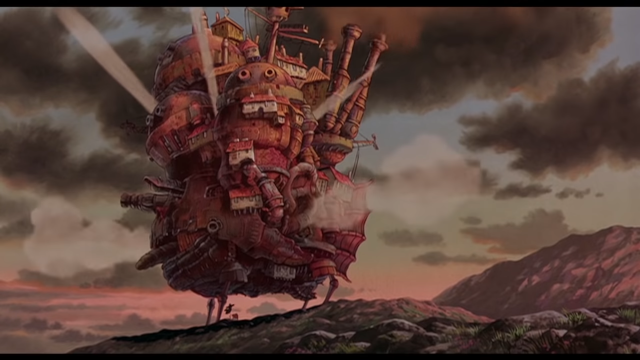
via HBO Max
JAMS is published through Illinois Open Publishing Network. Was accessibility a big concern for you when pursuing the creation of this journal?
Accessibility was my biggest concern when I was crafting JAMS. There was never a moment in time when I considered attempting to pursue the creation of this journal as anything other than open-access. I did my undergrad at a small state school in Massachusetts, and going from that to working as a graduate student in one of the largest academic libraries in the country was astounding. Millions of items at my fingertips that I never had access to before. Having so much access to so much amazing scholarship, I could only think of students at smaller universities, or fans outside of higher education that want to do this type of research. JAMS is open-access to be part of the solution to potential lack of access to scholarship about anime and manga.
Can you give us a general sense of the types of papers you've published and that you are hoping to receive?
JAMS publishes and is interested in high-quality work about anime, manga, cosplay, and their fandoms. We've had submissions, inquiries, and published works across a variety of disciplines. From analysis of the nuclear family structure in a major film, to the representation of the overlap in queer and disability cultures in a manga, to media industry history. Our Editorial Board members and reviewers come from backgrounds ranging from library and information science, to education, to literary studies. Anime and manga studies is a vast subject and extremely interdisciplinary, and because of that JAMS accepts papers from a variety of scholarly perspectives.
What is the state of anime and manga academic study in the US? Has it gained more traction parallel to the growth of the industry in the past decade?
Anime and manga studies classes are being taught in universities across the United States. Dozens of articles are published every year that fall under anime and manga studies. People are crafting theses for their advanced degrees about anime, manga, cosplay, and their fandoms. It is an extremely exciting time for anime and manga studies in the United States.
Are anime and manga studies generally taken seriously by the rest of the academic world, or is this an area of study that is still broadly fighting for legitimacy?
I would say that any person who does academic work on popular culture has to deal with occasional comments about their research, and may need to battle harder to prove the legitimacy of their scholarship. But Shakespeare was once popular culture. And Paradise Lost is a fanfiction. Popular culture scholarship is scholarship.
Do you (or do you plan to) collaborate with any Japanese academic centers or scholars?
I would absolutely say that one of JAMS long-term goals would be to include more international scholars on our Editorial Board! Currently JAMS' only institutional connection is to the University of Illinois at Urbana-Champaign, but papers have been submitted and published by scholars in several countries. I hope that JAMS can continue to grow, and gain further connections as we do so.
Do you have anything you would like to say to students who want to pursue academic study of anime and manga (or just anime fans who are interested in this sort of work)?
This is the outreach librarian in me, but if you are a student at any level of education – your librarian is your best friend! Librarians are all trained to help you find the information you need. If you want to do research on anime and manga at your institution, they can help you understand what your university library has to offer, and what resources are right at your fingertips. You also don't need to be majoring in Asian Studies or Japanese to engage in anime and manga studies! You can approach fandom from a historical perspective, perform qualitative or quantitative data-based research on using manga in a classroom setting, the sky's the limit! Additionally, there are a number of amazing resource guides put together by librarians all across the internet that are worth digging into. Your local library may also have a connection to a local university, which might give you limited borrowing privileges. Even just doing close readings and analysis of anime can make for amazing presentations at conventions and online, which might help inspire the next person to engage with anime and manga studies.
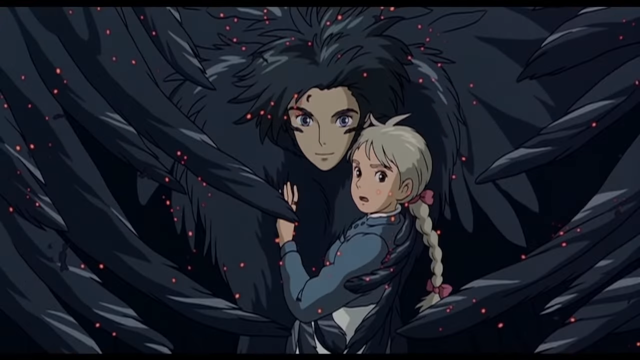
via HBO Max
- You can read an introduction to the journal here.
- You can follow Billy Tringali on Twitter @BillyTringali and the journal @OpenAccessAnime.
If you liked the article, do not forget to share it with your friends. Follow us on Google News too, click on the star and choose us from your favorites.
For forums sites go to Forum.BuradaBiliyorum.Com
If you want to read more anime-manga articles, you can visit our anime-manga category.

